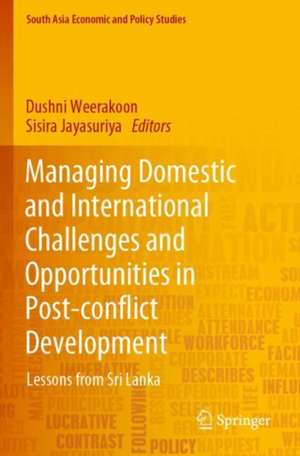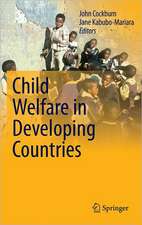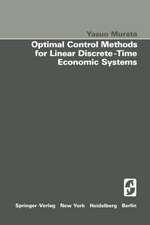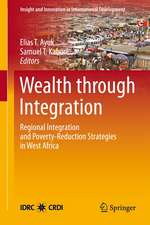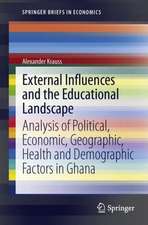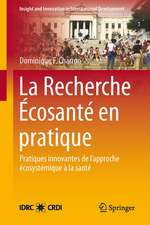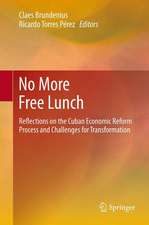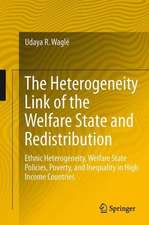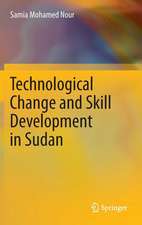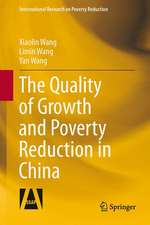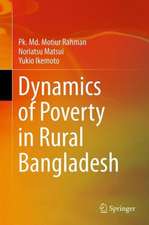Managing Domestic and International Challenges and Opportunities in Post-conflict Development: Lessons from Sri Lanka
Editat de Dushni Weerakoon, Sisira Jayasuriyaen Limba Engleză Paperback – 18 sep 2020
| Toate formatele și edițiile | Preț | Express |
|---|---|---|
| Paperback (1) | 454.37 lei 6-8 săpt. | |
| Springer Nature Singapore – 18 sep 2020 | 454.37 lei 6-8 săpt. | |
| Hardback (1) | 590.74 lei 6-8 săpt. | |
| Springer Nature Singapore – 17 iun 2019 | 590.74 lei 6-8 săpt. |
Preț: 454.37 lei
Nou
Puncte Express: 682
Preț estimativ în valută:
86.97€ • 94.50$ • 73.10£
86.97€ • 94.50$ • 73.10£
Carte tipărită la comandă
Livrare economică 21 aprilie-05 mai
Preluare comenzi: 021 569.72.76
Specificații
ISBN-13: 9789811378102
ISBN-10: 981137810X
Pagini: 273
Ilustrații: XV, 273 p. 29 illus., 21 illus. in color.
Dimensiuni: 155 x 235 mm
Greutate: 0.41 kg
Ediția:1st ed. 2019
Editura: Springer Nature Singapore
Colecția Springer
Locul publicării:Singapore, Singapore
ISBN-10: 981137810X
Pagini: 273
Ilustrații: XV, 273 p. 29 illus., 21 illus. in color.
Dimensiuni: 155 x 235 mm
Greutate: 0.41 kg
Ediția:1st ed. 2019
Editura: Springer Nature Singapore
Colecția Springer
Locul publicării:Singapore, Singapore
Cuprins
Chapter 1: Challenges and Opportunities of Sri Lanka’s Post Conflict Economic Development – Overview.- Part I: Policies, regulations, and governance for smart growth.- Chapter 2: Incentives, efficiency and competitiveness for balanced growth.- Chapter 3: Governance, institutions, and regulatory reforms for improving efficiency.- Chapter 4: Managing macro stability while investing in reconstruction.- Chapter 5: Policies for ensuring sustainable development.- Part II: Post-conflict development in a transforming global economy.- Chapter 6: Sourcing funds for development in the new global finance landscape.- Chapter 7: Changing global economic context and post-conflict development.- Chapter 8: Sri Lanka’s Role in South Asia-East Asia Economic Integration.- Chapter 9: Balancing economic partnerships for growth.- Chapter 10: Rethinking industrialization in a changing world order.- Part III: Smarter Development for Sustaining Peace.- Chapter 11: Making use of new opportunities: tourism in post-conflict development.- Chapter 12: Economic transformations for better lives through better jobs.- Chapter 13: Modernizing agriculture for reviving the rural economy.- Chapter 14: Achieving Equity in Development.- Chapter 15: Transitioning to middle Income: profiting from planned urbanization.
Notă biografică
Dushni Weerakoon is the Executive Director of the Institute of Policy Studies of Sri Lanka (IPS). Her research and publications chiefly focus on regional trade integration, macroeconomic policy, and international economics. She has extensive experience in economic policy formulation, serving as a member of the Macro and Trade Policy Steering Committee of the Ministry of Policy Development and Implementation (2002–2004), an official delegate to the Committee of Experts to negotiate the South Asian Free Trade Agreement under the Ministry of Trade and Commerce (2004–2005) and member of the Trade and Tariff Committee of the National Council for Economic Development (NCED) of the Ministry of Finance (2004–2010), amongst others. She holds a BSc in Economics from the Queen’s University of Belfast, UK, and an MA and PhD in Economics from the University of Manchester, UK.
Sisira Jayasuriya is a Professor of Economics at Monash University, Australia. He is adevelopment economist with a focus on economic policy issues in Asia. He has held previous appointments at the International Rice Research Institute (Philippines), the Australian National University, Melbourne University and La Trobe University, and has been a consultant to the Asian Development Bank, International Food Policy Research Institute, World Bank and several United Nations agencies such as ESCAP, FAO and ILO. He is also an Honorary Professor at the Arndt-Corden Department of Economics at the Australian National University, Canberra, and the Institute of Social and Economic Studies, Osaka University, Japan, as well as a Non-Resident Senior Fellow, National Council of Applied Economic Research, New Delhi. Prof Jayasuriya holds a BA (Hons in Economics) from the University of Ceylon (Peradeniya), and a Masters and PhD from Australian National University.
Sisira Jayasuriya is a Professor of Economics at Monash University, Australia. He is adevelopment economist with a focus on economic policy issues in Asia. He has held previous appointments at the International Rice Research Institute (Philippines), the Australian National University, Melbourne University and La Trobe University, and has been a consultant to the Asian Development Bank, International Food Policy Research Institute, World Bank and several United Nations agencies such as ESCAP, FAO and ILO. He is also an Honorary Professor at the Arndt-Corden Department of Economics at the Australian National University, Canberra, and the Institute of Social and Economic Studies, Osaka University, Japan, as well as a Non-Resident Senior Fellow, National Council of Applied Economic Research, New Delhi. Prof Jayasuriya holds a BA (Hons in Economics) from the University of Ceylon (Peradeniya), and a Masters and PhD from Australian National University.
Textul de pe ultima copertă
This book draws lessons from the story of Sri Lanka’s post-conflict development in the context of a struggle for socio-political reconciliation, a turbulent world economy, and difficult internal and external political challenges. Heightened volatility in the global economy and intensifying geopolitical rivalries pose complex policy challenges for small countries embarking on post-conflict daunting challenges. To sustain peace, development needed to be broad based and inclusive. It needed to rapidly reconstruct war-devastated regions, restore macroeconomic stability, while delivering a ‘peace dividend’. The book contains contributions that highlight Sri Lanka’s endeavours of coping with adverse shocks, while exploiting new opportunities. It showcases how the island country had to attract capital and assistance, and support of the international community, including that of the rising Asian giants – China and India. Addressing the post-conflict challenges of sourcing development finance in a new global financial and political landscape, the book would be of interest to researchers working on post-conflict development in the context of a volatile global economy and changing aid architecture, and would also act as an important resource for policy makers.
Caracteristici
Discusses the challenges of post-conflict development for a multi-ethnic, multi-cultural, and democratic Sri Lanka in the aftermath of a separatist conflict Presents development options available for an emerging low middle-income economy – such as Sri Lanka – facing a rapidly transforming global economic and geopolitical landscape Covers the risks, both political and economic, associated with new debt-creating development finance flows for fresh entrants to the ranks of middle-income countries such as Sri Lanka
